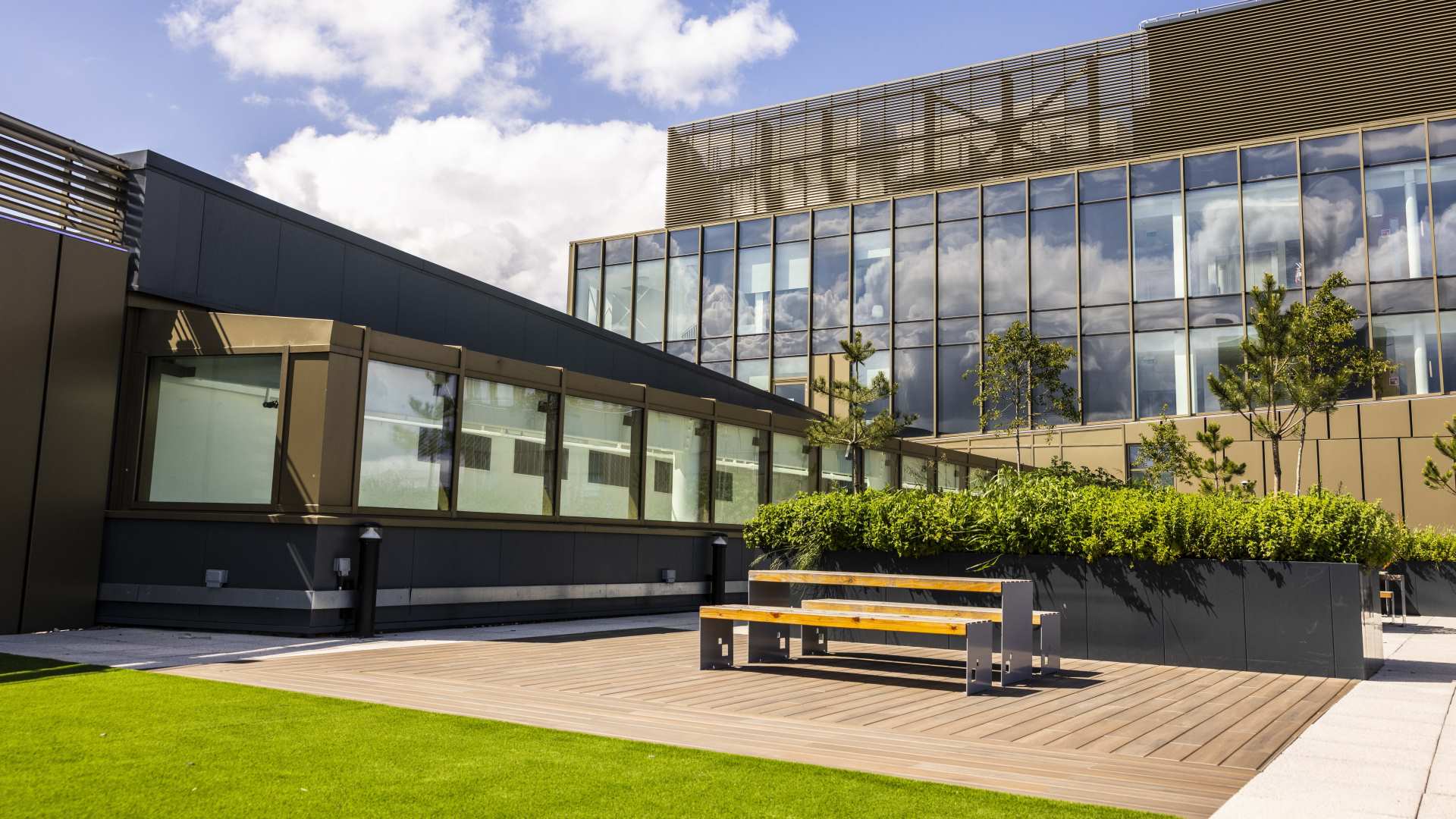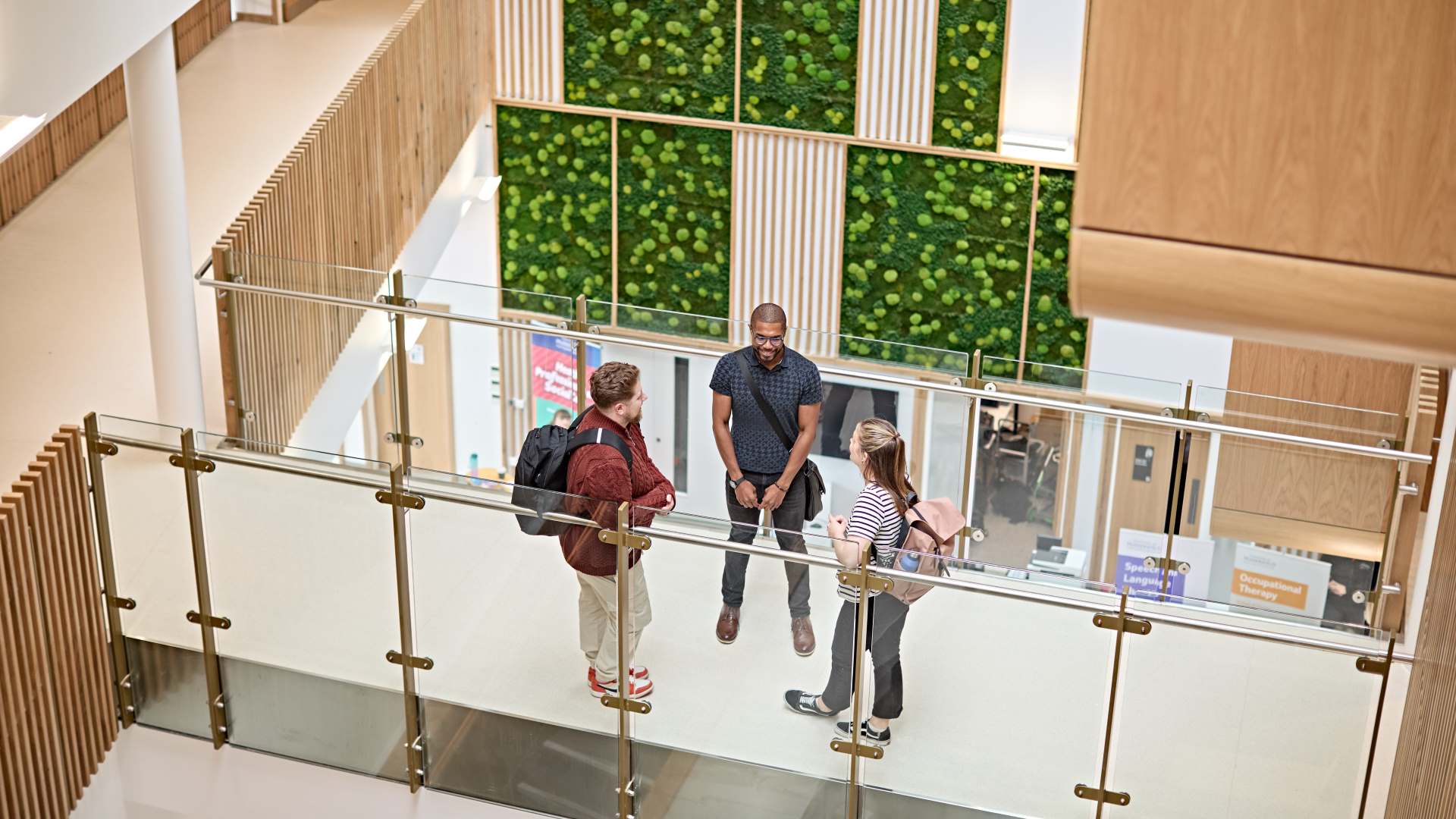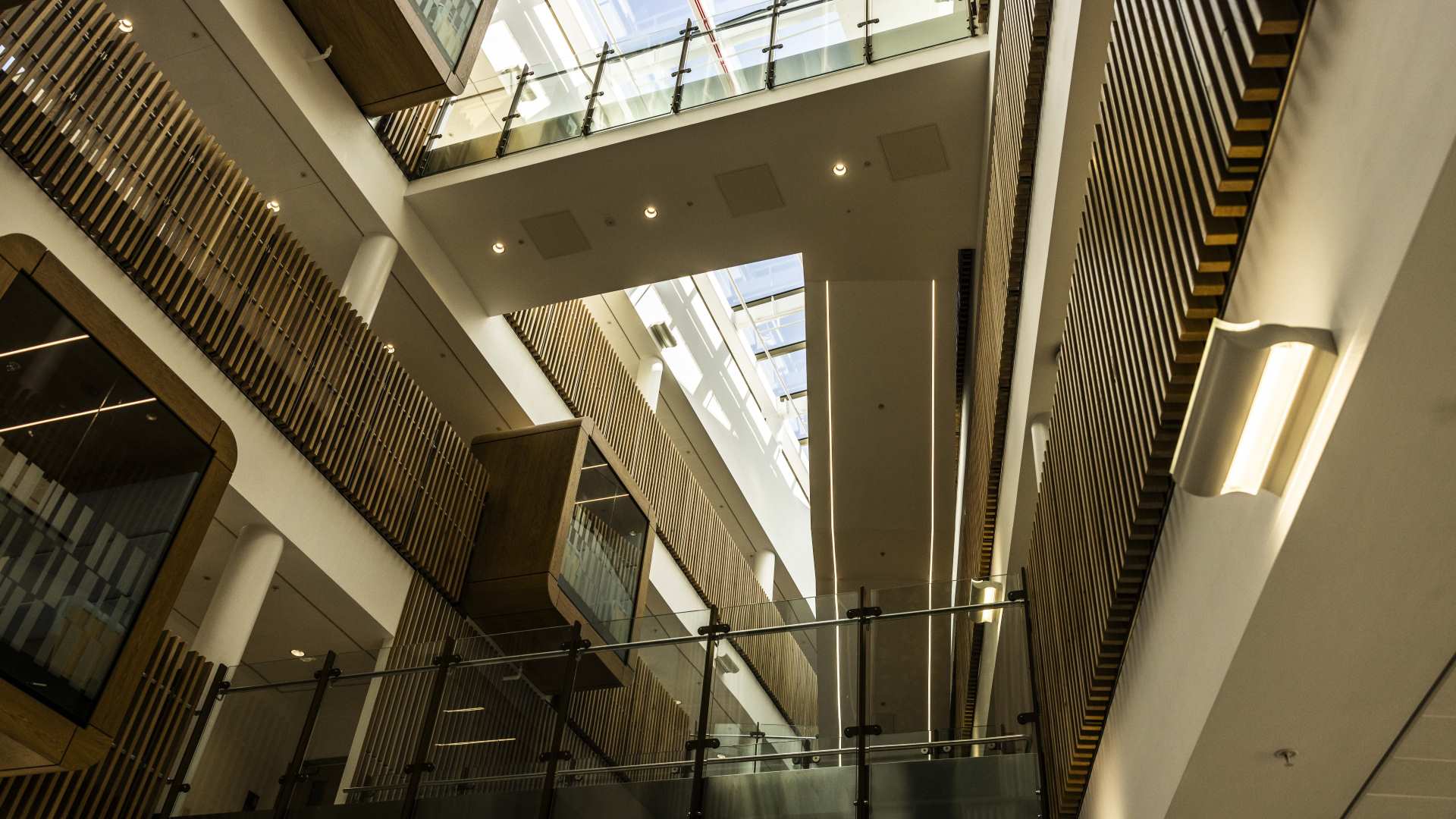Daphne Steele Building earns WELL Platinum status for health and wellbeing

The University of Huddersfield is delighted to announce that the Daphne Steele Building has become the university’s second facility to achieve the esteemed Platinum level WELL Certification, in recognition of its focus on human health and wellbeing.
Huddersfield is now the only higher education institution in the UK to have two buildings with the WELL Platinum certification, with the Jo Cox More In Common Centre having attained this in September 2024. The Daphne Steele Building is the largest WELL Certified Platinum university building in the country.
What is WELL Certification?
The certification has been awarded by the International WELL Building Institute (IWBI), the global authority for transforming health and well-being through buildings, organizations and communities. It represents the highest level of WELL Certification, recognizing how a building’s design and operational strategies acknowledge a need for good health and wellbeing for everyone who visits or uses it.
The Daphne Steele Building is named after the pioneering Windrush-era nurse, who settled in West Yorkshire after emigrating from her native Guyana in the 1950s and became the first Black matron to be appointed in the NHS.

It is home to many courses from the School of Human and Health Sciences. It opened in September 2024, and it also contains public-facing facilities including a podiatry clinic and the first stage of a Community Diagnostic Centre that is operated in partnership with Calderdale and Huddersfield NHS Foundation Trust.
Health-centred WELL design features of the Daphne Steele Building include:
• Continuous monitoring of air quality, noise levels, drinking water quality and thermal comfort to create a healthy environment
• Access to good quality drinking water at multiple points on all six floors
• Thoughtful lighting design that adapts to weather conditions and time of day into for optimal comfort
• Messaging on nutrition around the ground floor café, with consideration given to quality of food available, and space for diners
• Easy access to outdoor space
• Design and layout of office spaces to minimise noise, with sound-proof meeting ‘pods’ available
• Biophilic designs for increased access to nature, and ‘living wall’ panels throughout
• Smart ventilation systems to maintain fresh, clean indoor air
More building projects to aim for WELL Platinum
The Daphne Steele Building is located on the National Health Innovation Campus (NHIC) on Southgate, a short distance from the university campus. The Emily Siddon Building, currently under construction next door, is also being built with a view to attaining WELL Certified Platinum, and is expected to open in early 2026.
Professor Tim Thornton, University of Huddersfield Deputy Vice-Chancellor, commented, “The University’s National Health Innovation Campus is focused on improving health and wellbeing regionally, nationally and internationally.
"We are working with leading partners in the health service, third sector, and business to drive innovation and new approaches to education & training. We engage with people directly, often with student-led activities, to enhance health and wellbeing. WELL Platinum status for the Daphne Steele Building demonstrates that commitment in the design and use of the campus buildings themselves.”

“It is our pleasure to celebrate the University of Huddersfield’s outstanding leadership with this latest WELL Certified Platinum achievement of the Daphne Steele Building,” said Ann Marie Aguilar, Senior Vice President, EMEA, IWBI. “By continuing its commitment to advancing people first places throughout its on-campus community, Huddersfield is inspiring others across higher education to support human health and well-being.”
Robert Hopkins, Project Lead at architecture partners AHR, added, “Designing to the WELL Standard means thinking carefully about how a building supports people’s mental and physical wellbeing, from light and air quality to comfort and connection.
“The Daphne Steele Building truly embodies this, showing how thoughtful design can help people feel their best, boost productivity and make a positive difference to the students, staff and everyone who uses the space.”
Shauna Buckley, Director and WELL AP at Carbon.Climate.Certified, added that, "The University of Huddersfield’s commitment to applying the WELL Building Standard in the Daphne Steele Building is commendable. This project reflects the University’s forward-looking approach to creating spaces that not only meet academic and functional needs but also actively enhance the experience of the people who use them."
Further Information
Photo credit: University of Huddersfield
Photo captions: (1) The garden area on the fourth floor at the Daphne Steele Building. (2) Inside the atrium of the Daphne Steele Building. (3) Looking up inside tha atrium